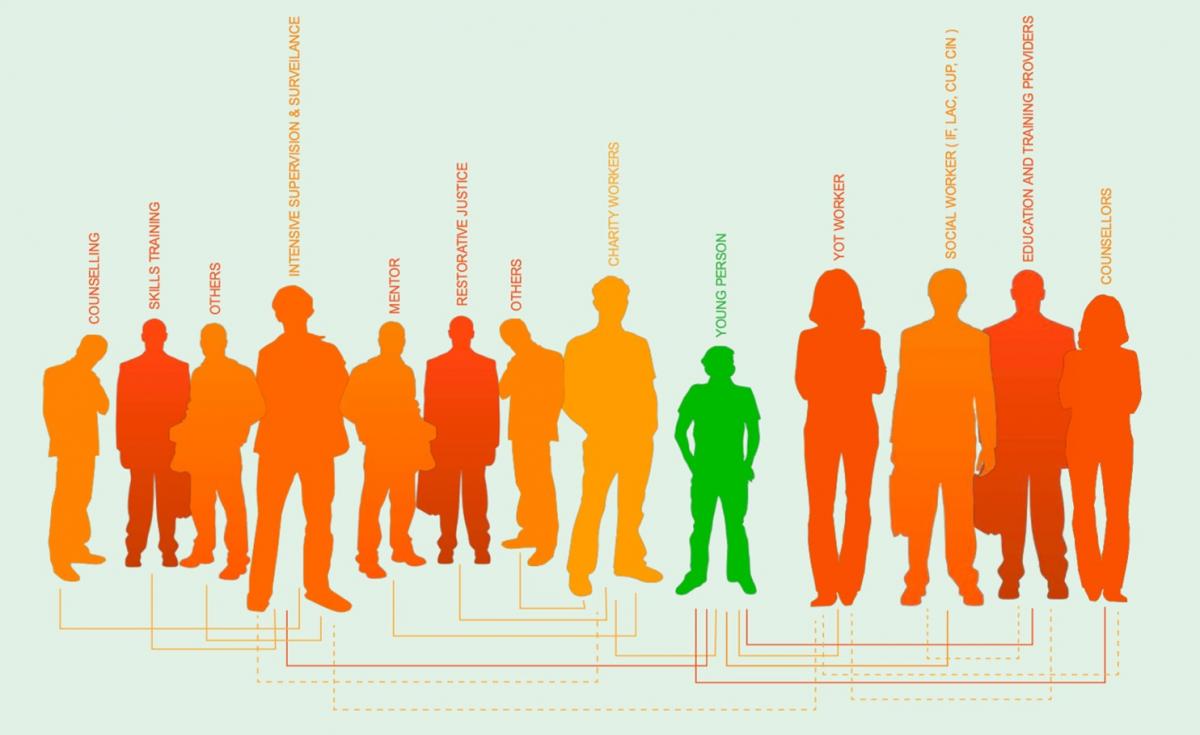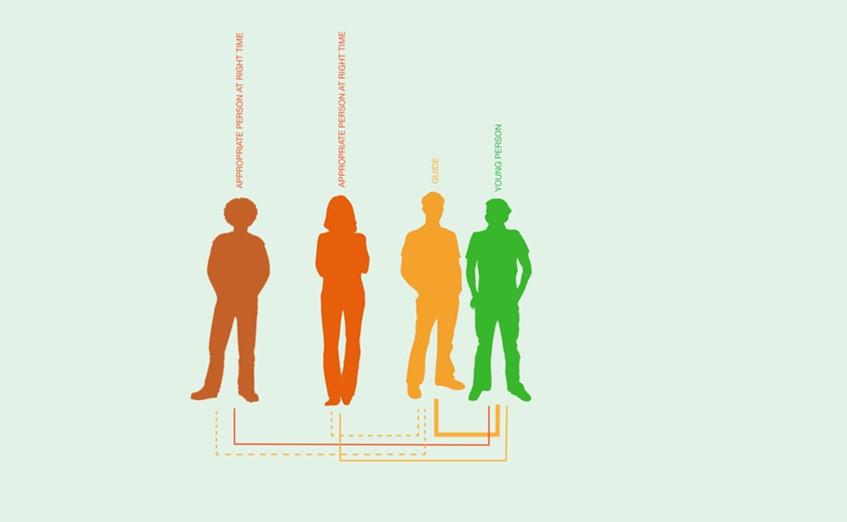Too often, approaches to children in conflict with the law are risk first, episodic, and deficit-focused interventions delivered by a large network of frequently changing professionals. They do not always encourage the use of all the considerable skills, experience and creativity professionals have, or allow it to develop within a relational context.
‘It’s confusing cos, like why is no-one helping me [...] I have all these people, I have 15 professionals, and I think I have met like 3 of them, 4 of them.’ (Rob, 18)
‘The relationship with professionals broke down, because there was a lot of things getting promised and never [...] No matter what me or Kieran was doing. Cause it got to the point where I thought [...] I was on the Order. It was me that was in trouble as well.’ (Mother of Kieran, 17)
‘When I was homeless, I was telling them, where am I gonna sleep tonight, I am homeless, this is your job, they were useless. They never helped me with anything, they did nothing. I ended up patenting [slang for sorting out] up my own place to stay [...] None of the social workers helped me.’ (Archie, 18)


SHiFT does things differently.
-
SHiFT starts with aspiration and sets the bar high. We do not define children and young people by their problems or behaviours.
-
SHiFT reaches children and young people and stays with them, wherever they are and wherever they go. We are not constrained by artificial barriers, such as age limits, service thresholds or Local Authority borders.
-
SHiFT supports each child or young person through points of transition such as from childhood to adulthood, from custody to the community, or from out of education or employment to back in. There is no cliff edge at 18.
-
SHiFT supports children and young people to change their perceptions of themselves and to challenge others' perception of them. We believe in children so that they may believe in themselves .
-
SHiFT supports the child to navigate their world differently, walking alongside them and working with everyone in their world, including especially families. In so doing, we help to change limiting patterns of behaviour and relationships.
-
SHiFT Guides are not just another additional service in children’s lives - they showcase the power of fewer, deeper professional relationships with children and families by holding responsibility (including, where appropriate, statutory responsibilities), simplifying the professional network, joining dots, and making the system more coherent and effective for children and their families.